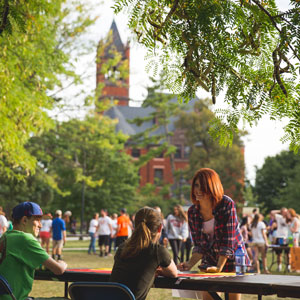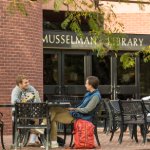
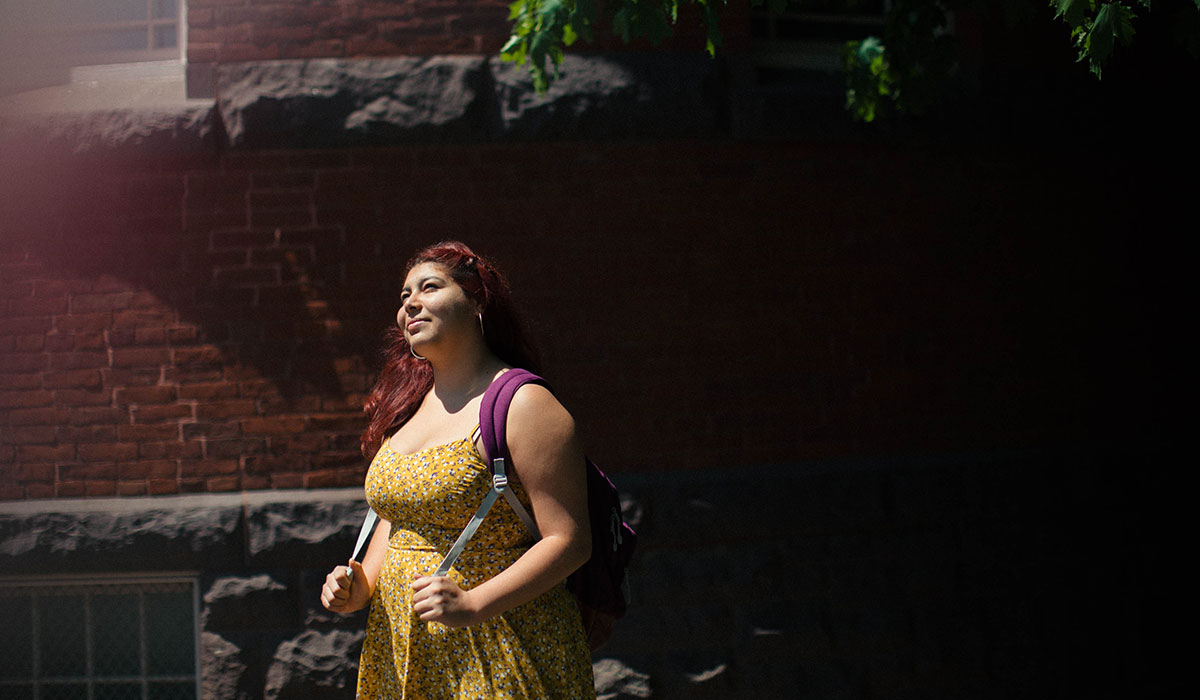
Candice Montenegro ’20 knows about breaking down barriers despite cultural divides.
A psychology and Spanish/Latin American, Caribbean, and Latino Studies double major, she became involved in the Center for Public Service (CPS) because she was inspired by their commitment to creating sustained and effective social change. Through CPS, she’s been able to work with migrant communities and participate in immersion trips tracing the footsteps of Civil Rights activists.
What she has learned is that the best way to break down stereotypes is to build relationships with the people who propagate them.
While it’s a lesson with profound impact on how she views many issues, she’s found a way to put what she’s learned into action on campus as the founder and house leader of Latinx House. As part of the College House program, Latinx House is dedicated to connecting Latinx students and building relationships based on understanding and shared interests with the rest of the campus community. They do this by creating a visible presence on campus that allows them to bring the campus community together and engage students in aspects of Latino culture in all its different forms.
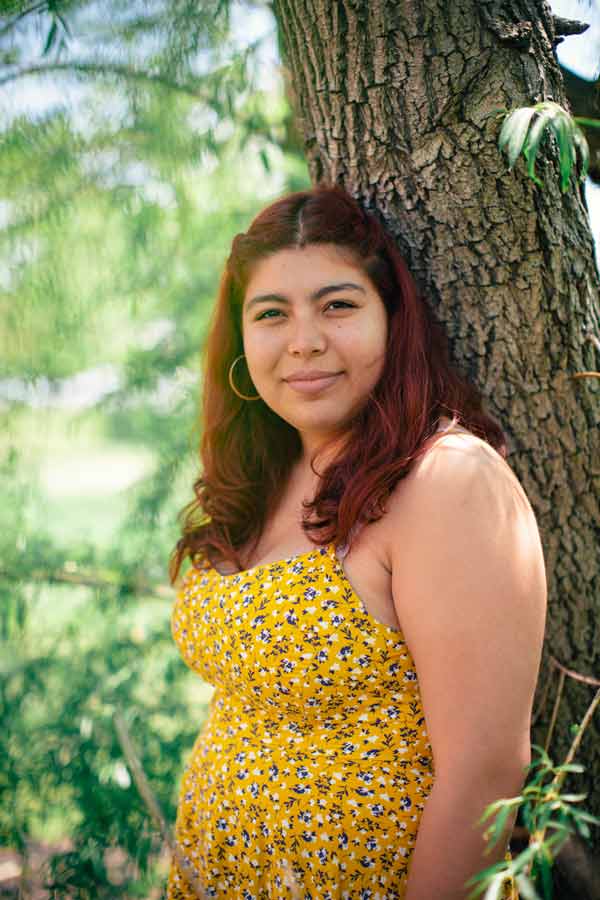
“For many people, they don’t hold these beliefs out of hate. They just haven’t had the chance to learn, and that’s what we are all here in College to do,” Montenegro said. “We give people the opportunity to build those relationships, engage in each other’s culture, and hopefully—where they exist—to challenge and change any stereotypes they may have previously believed.”
Montenegro saw the need for a space to facilitate this exchange after first arriving at Gettysburg. Coming from a predominately Latino community in Los Angeles, California, Montenegro found herself experiencing culture shock during her first year.
“I worked with a college placement program that took us on tours to see East Coast colleges and really helped us get a sense of what it would mean to go to college so far from home, but I truly didn’t understand what that would mean until I arrived,” Montenegro said. “I immediately got involved in the Latin American Student Association (LASA), and that’s when I realized that while the Latino population here might be small, it is strong and it is growing.”
Students can apply to live in a College House for their sophomore year, and Montenegro was surprised to learn that LASA did not already have one. It seemed like a logical extension for the community she had come to know and love—a physical space to welcome students whenever they felt they needed it, a place those students could make their home.
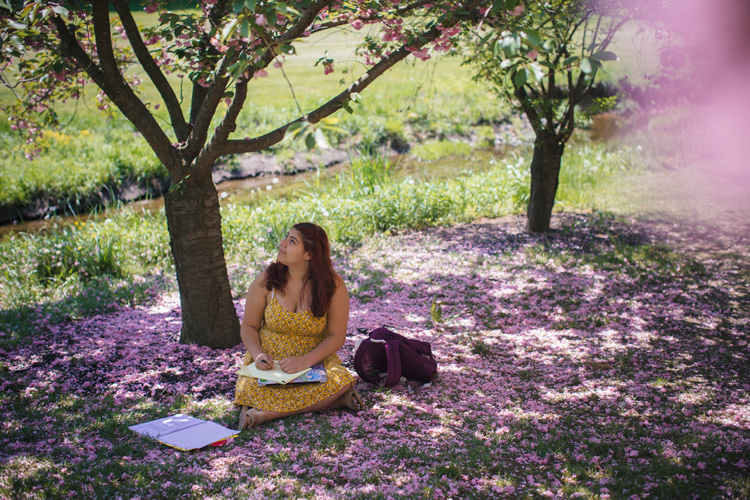
Like countless Gettysburgians before her, she saw a chance to have a positive impact on the campus community and dedicated herself to pursuing it. She sought out support from campus administrators and faculty members, who guided her as she prepared an application, and connected with students who were interested in living in the Latinx house.
Melanie Pangol ’21 was one of those students. Coming to Gettysburg from New York City, she was an early supporter of a space for students like herself and Montenegro to live, to engage the community, and to help Latinx students navigate the transition to college life.
“One of the biggest misconceptions people have is that they put people of color under an umbrella, but when it comes to the Latinx community, there is so much diversity that it is hard to generalize one Latinx experience,” Pangol said. “It became pretty clear in our first meeting to discuss what Latinx House could be that we wanted it to be a space where everyone, Latinx or not, could feel included. We wanted every identity and culture to be celebrated, and we wanted to share those cultures with the rest of the campus community. Doing that would give us a sense of home, give us a voice and a visible presence, and give us the space not to have to justify our identities but instead focus on our academics like we are here to do.”
Montenegro and Pangol were joined by Mariam Martinez ’21, Vanessa Martinez ’19, and Gisselle Flores '21. Their bid for a College House was accepted, and the house launched for the 2018-19 academic year. So far, the students have focused their efforts on building their presence on campus through partnerships with different clubs and organizations, holding events to engage students, and reaching out to new students to support them during their transition to the College.
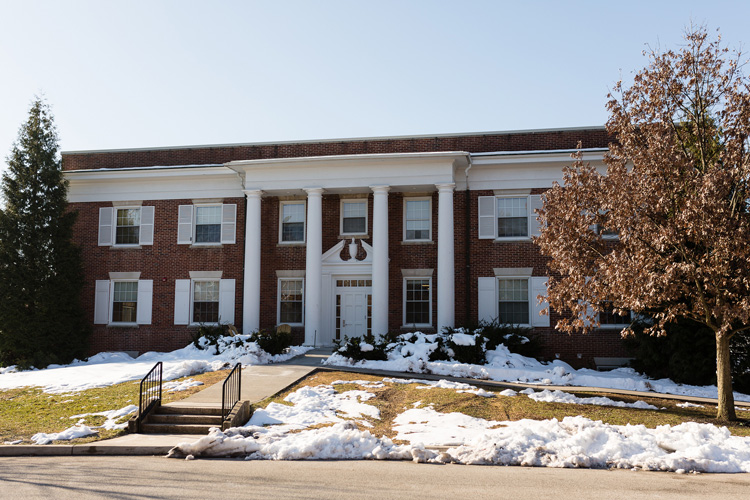 Darrien Davenport, the executive director of the Office of Multicultural Engagement, has been one of the sources of support for students in their application for and creation of the College House. He sees this College House, their events, and the space they are creating as an extension of the College’s work to educate engaged and informed global citizens who are committed to taking meaningful strides towards a more diverse and positive future.
Darrien Davenport, the executive director of the Office of Multicultural Engagement, has been one of the sources of support for students in their application for and creation of the College House. He sees this College House, their events, and the space they are creating as an extension of the College’s work to educate engaged and informed global citizens who are committed to taking meaningful strides towards a more diverse and positive future.
“This is a wonderful continuation and growth of our Gettysburg community, and they’ve already had so many people who want to engage and collaborate with them. That’s exactly what we are here to do,” Davenport said. “The more we can connect in these different ways and can share time, place, and space with one another, means the more we can engage with healthy and positive discourse, and the more we will all grow and the better we all will be.
For Montenegro, it all started with a desire to help people who, like herself, saw a need in their community and wanted to take action. While she’s learned some important lessons along the way, perhaps the greatest is the one she’s learned about the future she’d like to have—a future Gettysburg College helped her realize is possible.
“Through my work with Latinx House and my other involvements on campus, I’ve really seen how much I want to give back to my communities, and how I want to make things better for other people,” Montenegro said. “I’m fortunate that I get to do that here on campus, and now I know I want to do that for a career, too.”
By Kasey Varner ’14
Posted: 02/26/19


